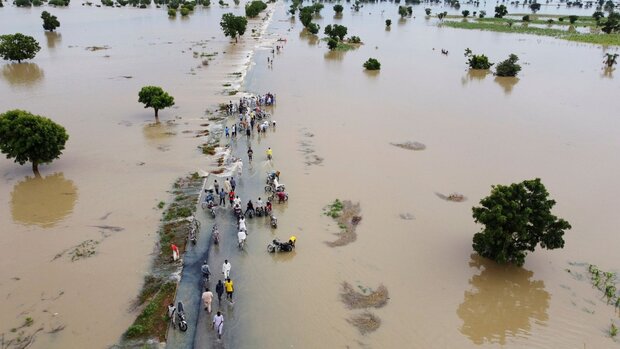More than 1.3 million people have been displaced by the disaster, which has affected people across 33 of Nigeria's 36 states, the country's Ministry of Humanitarian Affairs said late Sunday, CBC reported.
At least 340,000 hectares of land have also been affected, worsening fears of food supply disruptions. Armed conflict has already threatened production in the northwest and central regions of Nigeria, which produce much of what the country eats.
Nigerian President Muhammadu Buhari directed "all concerned to work for the restoration of normalcy," according to a statement issued by the presidency.
Nigeria experiences annual flooding, especially in coastal areas, but this year's floods are the worst in more than a decade. Authorities blame the disaster this year on the release of excess water from the Lagdo dam in neighbouring Cameroon and heavier than usual rains that had been building since early summer.
The flooding has worsened the humanitarian crisis in Nigeria, where armed violence — especially in the troubled northern region — has already displaced more than three million people, according to the Internal Displacement Monitoring Centre.
Sadiya Umar Farouq, Nigeria's humanitarian affairs minister, warned that five states are still at risk of experiencing floods until the end of November.
"We are calling on the respective state governments, local government councils and communities to prepare for more flooding by evacuating people living on flood plains to high grounds," Farouq said.
Last week, Buhari approved 12,000 tonnes of grains for the flood victims, the humanitarian affairs minister said.
Also last week, drone footage in Lokoja — a city in the north-central Kogi state, at the confluence of the Niger and Benue Rivers, that has suffered weeks of flooding — showed dozens of submerged homes and businesses.
ZZ/PR

























Your Comment